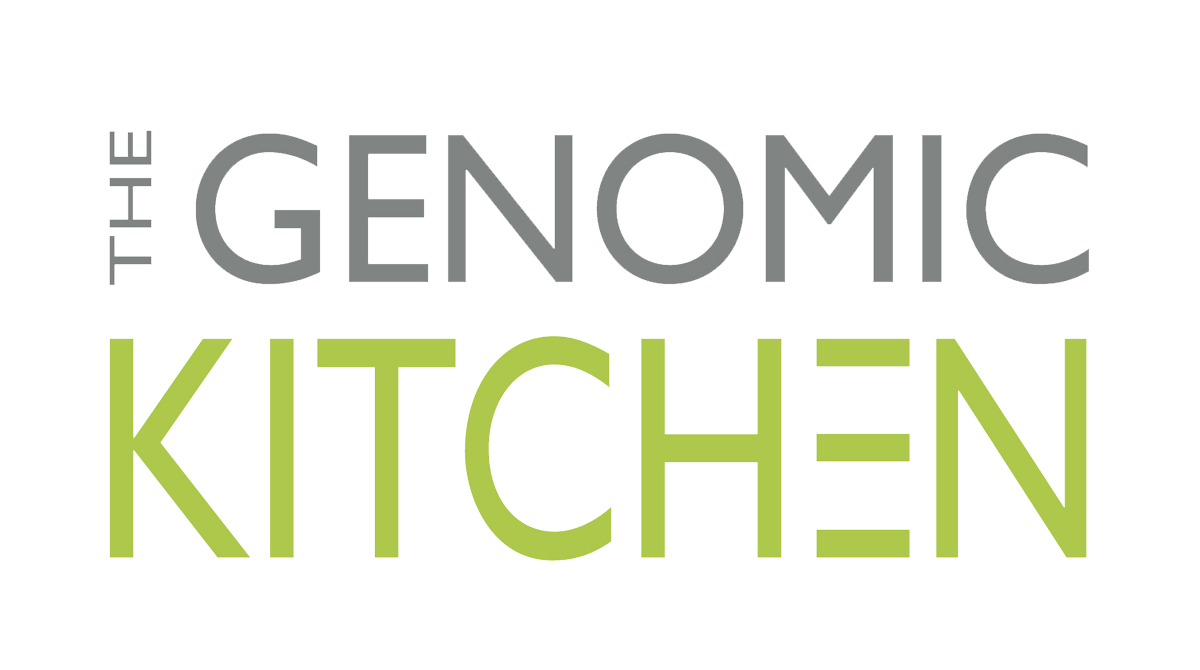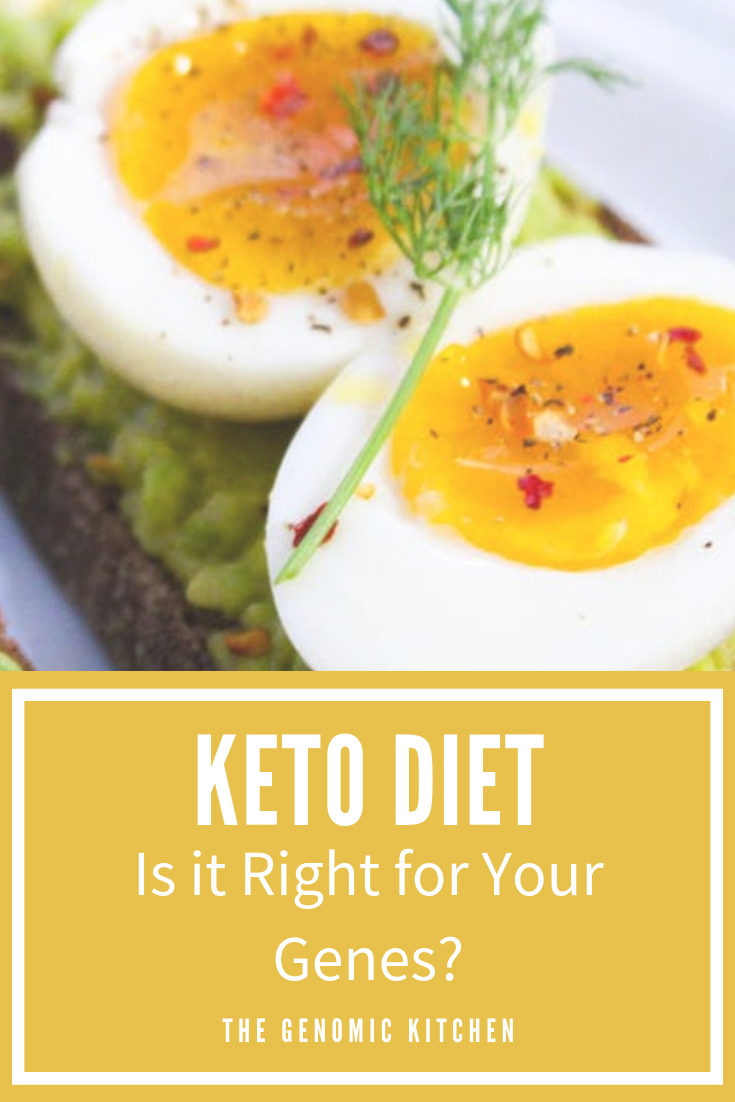Keto, Detox: Are They Right For Your Genes?
/It is no secret that nutrigenomics is redefining how we shop for and prepare food that nourishes us. I have written extensively on the topic, but in this post, the first of two about my passion for nutrigenomics, I want to share more about WHY I believe so deeply in this new area of science and how it impacts health. Let’s cover some basics and then I’ll jump into how we use nutrigenomics to fine tune whether the hot diet topics of ketogenic and detox diets are right for your genes.
Nutrigenomics: a science for all people
Nutrigenomics is the science that describes how nutrients in the food actually work in the human body. Nutrigenomics weaves together two fields of science. Firstly genomics, the science of how genes work to direct the human operating system which we call biochemistry. When we know how genes work, we can influence health outcomes. Secondly, nutrition science which tells us how vitamins, minerals, carbohydrate, fat, protein and importantly, bioactives work together to turn the biochemical gears of the body. When we put gene (genomic) information together with nutrition information we can generate a unique health blueprint for you as an individual. This is the essence of nutrigenomics. The exciting part of this rapidly emerging field is that it can be used to optimize health at both an individual and a public health level. Let’s focus here on individual health.
Your genes are a mirror of who you are
We are still in the “early adopter” phase of genomic testing. Most people do not have personalized genomic information on board, yet. But for those that do, genomic information changes a routine visit with your doctor or nutrition expert from trial and error interventions, to very specific treatment modalities and nutrient recommendations that will redirect the course of your health.
Genomic information is a mirror of your genes which describe who you uniquely are as a human being. It’s akin to looking under the hood of your car at the engine and all its moving parts. We all know that when the engine is not up to scratch, it’s time to take it into the shop for a bit of maintenance so you can get your it back on the road. Genomic information allows us to look at your genes which essentially drive your human engine. It tells us which genes are fully operational, which ones are overworking and which ones are, for lack of a better word, slackers. And one slacker gene does not tell the story! We actually look for patterns of those slackers, as well as patterns among genes who are working overtime. Once we identify those patterns, we turn to nutrigenomics to tell us which nutrients we need to add or emphasize on your plate to help your genes get human motor to run smoothly again. While we can’t fix your human body like we can a car, we can, through food, provide your genes with the right information to get you humming along again.
Sorry folks, keto is NOT for everyone
I know this is provocative, but keto is the diet of the year right? I am not the only one learning that lots of people have lost weight, lowered their cholesterol and their blood sugar too. Bravo, truly! But how do you know if keto will work for you? Genomics tells us so, leaving no guess work behind.
Let’s say you have been struggling with those pesky high levels of triglycerides or cholesterol, enough so that your doctor is suggesting a drug to take care of them. Uh oh! Now when we look under the hood at your genes, we find a bunch of slackers, sitting around on the job and not doing what they are supposed to do, which is handle your fat and cholesterol. Now not all your fat management genes are slackers. Some are working fine. But the slackers are dragging down the worker bees and so you end up with those elevated numbers. Seeing these patterns in your genes allows us to intervene through your diet to deliver different types of fat, different amounts of fat and very specific nutrients. We literally create a food work around that cracks a whip behind those slackers so they step up to the plate to get their job done.
And YOUR unique gene blueprint my friends, is why the ketogenic diet is NOT for everyone. In fact for some people, the higher fat, lower carbohydrate focus of the ketogenic approach is hazardous for you, because your genes don’t handle fats the same way as your neighbor’s genes. Don’t get me wrong, I love the whole food, vegetable friendly part of keto, but if you have gene variants that cannot handle a higher fat load, this dietary format is a collision course for you and your genes. And yes, it will show up in your labs and in your health. Just saying…
How the environment collides with your genes
Let’s face it “detox” is a buzz word. It has fans and detractors. Fans believe that detox is a way of cleaning up your body and getting rid of the junk that ails you. Detractors say no special “diet” is required for detox because your body is equipped to do it without fancy smoothies or diets. Well folks, the truth is half way in between. Yes, you can eat specific foods that support the detoxification systems (we call this biotransformation) that you were born with. Yes these systems are designed to remove toxins and reactive molecules that could eventually kill you. No, you can no longer assume that these “natural” systems to do their work for you because frankly none of us has a perfect detox system, and so many of us are getting sick. More to the point, we are living in an environment that overwhelms the natural systems we were born with, and frankly they need help. How do we know this?
Ask any clinician working with genomic information and they will tell you how. So many times when we are working with cancer cases, genomic information lights up pathways conducive to cancer like a Christmas tree. Granted, cancer is complex, but all too often we see gene patterns that suggest poor detoxification. Detoxification is essential for the removal of toxic molecules that bind up our biochemistry and send our cells on a destructive path that all too frequently results in cancer.
The methylation pathway provides molecules that support efficient detoxification. We also see dysfunctional gene patterns in this pathway that only serve to magnify the detoxification problem. Add in our environment which is replete with heavy metals and other toxins that effectively block the smooth running of our biochemistry, and you have a collision course. If the collision course (think of a wheel out of round) runs without the right nutrients in the right amounts, then you have a perfect biochemical storm for cancer or other significant health issues. Genomic information tells us where to look to begin to unravel the issues that cause disease. Nutrigenomics tells us which nutrients to prioritize to help these systems conduct the business they are supposed to.
Sharing the excitement
I currently teach in a number of health professional courses that connect the power of genomics and nutrigenomics to food and health. In three years of advanced-level teaching, I have never had one clinician say this work is anything less than inspiring. In fact, the most frequent description of this work is “brilliant.” Medicine is changing. How we choose specific foods and how we prepare them is changing. And as a result of this, how we support your individual health is changing. I promise.
In my next post, I’ll talk about how we can harness the power of nutrigenomics so that you start to apply it when you shop and when you cook. You see, while an individual genomic test is one of the most powerful investments you can make in your health, you can still harness this exciting field of science and put it to work for you, starting tomorrow, and yes without a genomic test.






